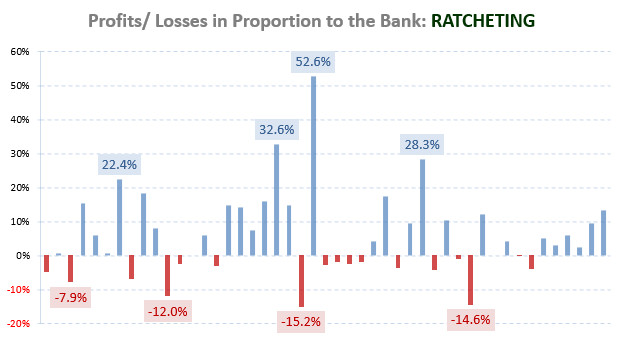
Recently, an old friend came along and asked me to have a look at his finances. Despite the fact his monthly net pay was in the region of £2,500, his overdraft was constantly rising. He often found it quite difficult, especially at the end of a month, to pay the bills.
 Shutterstock Artist: Andy Dean Photography
Shutterstock Artist: Andy Dean PhotographyHowever, most readers will probably agree with me that £2,500 per month is an agreeable amount of money for one person.
In 2014 the UK average salary was around £26,500 (£2,200 gross per month), less taxes, leaving a net pay of £1,750.
My friend, earning more than 40% above the average salary, somehow managed to get into difficulties.
I cannot deep-dive into the complexity of his problem here, but one thing came very quickly to light: He was juggling far too many bank accounts, credit cards, monthly standing orders, direct debits, and so on…
In short, he had simply lost control of his own money.
Control Your Spending
The simplest way of taking control of your money is to have only one bank account, for all purposes. The need to pay attention to multiple accounts will immediately disappear.
Another, very simple cash control mechanism is never to shop using bank account debit or credit cards.
Even if it sounds old-fashioned, most people find it considerably easier to control their finances using cash rather than bank statements.
Developing the habit of paying as many things as possible in cash reduces the opportunities for over-spending.
Those who pull out a card for every purchase without calculating the real immediate and future cost without maintaining a budget will quickly find themselves in a similar situation to my friend.
One Loan to Rule them All
This solution is called “Debt Consolidation” in professional jargon.
Please write down all your loans, mortgage payments, leasing contracts, etc. For many people this will not be an easy task. But please do it. Believe me, it is essential to get an overview of what you own and what you owe.
My friend came up with at least eight different, regular monthly debts including a loan for his Smartphone, another instalment payment for a fridge, an overdraft in one bank account, some money owing on a credit card, a personal loan with another bank, and also some money borrowed from his parents.
I then asked him how much he owed in total. He found it difficult to give a straight answer, as it was difficult to take in the scope of his various accounts and balances.
It took him a while and a lot of effort to compile a complete list of his various debts.
Of course, my next question was how much interest was he paying for the privilege of being in debt? Again, no immediate or straightforward answer was forthcoming.
After a few calculations he totted up his various loans. The outstanding total was over £20,000, more than 65% of his annual salary! Alone, the interest in a year amounted to £1,480 – equivalent to almost 5% of his annual income. The shock of coming to terms with this position was followed by some sleepless nights.
It is said that a normal, healthy debt, as long as you can meet its payment obligations, is fine. But what is “normal and healthy”?
I write about this subject in some detail in my article Healthy Debt & Debt Consolidation, but for gaining and recovering control over your finances, the first step is simply to become aware that you have to take control.
Therefore, the first advice I gave my friend was to consolidate all of his debts into one loan only.
The Simplest Way of Taking Control of Your Own Finances
- Manage only one bank account
- Pay all purchases in cash from a predetermined budget (for example, £100 per week)
- Instead of dozens of monthly loan instalments for different things, consolidate them into one loan
What also helps is to maintain your awareness and always bring purchase receipts back home, file them, and scroll through them once in a while. I recommend doing this at least once a month.
In tandem with this, make a habit of looking at your (one!) bank account to check if there are any recurrent payments you can get rid of, or any other payments for things you don’t badly need or want.
In short, do something about it and don’t bury your head in the sand, as financial problems seldom disappear. In fact they have a nasty habit of becoming much worse, very quickly.







